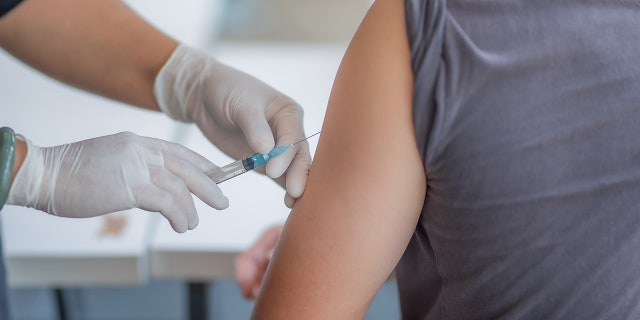
Fox News Flash top headlines for April 20
Fox News Flash top headlines are here. Check out what’s clicking on Foxnews.com.
Research is underway to develop a twice-per-year vaccine that may help people overcome opioid addiction. The vaccine, which is being funded in part by a $25 million grant from the National Institutes of Health Helping to End Addiction Long-term Initiative (HEAL), targets fentanyl, a powerful synthetic opioid estimated to be 50 to 100 times more potent than morphine.
“This could be a game changer for addiction,” Therese Kosten, professor of psychology at the University of Houston, said, according to a news release posted on EurekAlert.org.

By blocking the drugs from the brain, the vaccine would reduce the respiratory depression brought on by opioids when they reach the brain.
(iStock)
Fentanyl was named the deadliest drug in America by the Centers for Disease Control and Prevention (CDC) in recent years, beating out heroin and oxycodone. Authorities marked a 113% increase per year between 2013 and 2016 in the number of deaths involving the drug. Fentanyl, which is both cheap to produce and is often used by dealers to lace other illegal narcotics with, also poses a risk to first responders or those unaware of its presence as it can be absorbed through the skin.
The opioid crisis has been further fueled by the COVID-19 pandemic, as the CDC recently estimated that 87,000 people died of drug overdoses in the 12 months ending in September 2020. In 2018, the agency had noted that overdose deaths were dropping for the first time in decades.
The American Rescue Plan includes $1.5 billion designated for the prevention and treatment of drug abuse, and $30 million more for local services to benefit addicts.
CORONAVIRUS TAKES TOLL ON PROGRESS MADE IN FIGHT AGAINST ADDICTION
Kosten explained that fentanyl differs from other opioids in that it activates the same receptors in the brain as heroin or morphine, but uses a different mechanism that makes reversal drugs like Narcan nearly ineffective.
For their part, researchers from Boston Children’s Hospital and the University of Houston explained that the vaccine would work to protect the brain and nervous system by stimulating the body to create antibodies that target and bind to opioid molecules, preventing them from crossing the blood-brain barrier to reach the brain. By blocking the drugs from the brain, the vaccine would reduce the respiratory depression brought on by opioids when they reach the brain.
CLICK HERE FOR COMPLETE CORONAVIRUS COVERAGE
Kosten said the researchers will also evaluate multi-dose strategies versus single-dose immunization, heterologous vaccination strategies and the impact of waning immunity.
Source: Read Full Article
